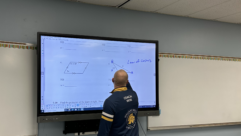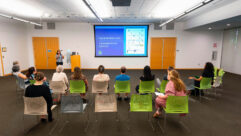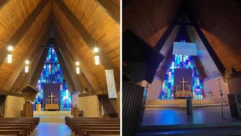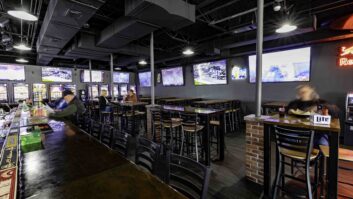CRAS Graduate and Current Recording and Mixing Engineer Chance Hubbard Went From a Modest Upbringing in the American Desert Southwest to Working His Dream Jobs at Studios in New York City and Los Angeles
Gilbert, Ariz., August 4, 2023 – In Roswell, New Mexico, many look to the stars as it is known mostly for its history of UFO conspiracies and investigations. However, the small city is now also known for a rising star in the world of pro audio engineering.
Chance Hubbard was born into a family with a modest home life in Roswell, but one that was also very nurturing and supportive to its three children.
“When I was a child, on each Sunday my whole family would listen to our radio while we cleaned the house,” explained Hubbard, the youngest child of parents’ Susan and Michael. “We had a pair of speakers, and I immediately fell in love with audio. My mom would play a variety of old songs and I would always ask questions, such as what instruments were playing, which artist it was, and how the sound came out of the speakers. My love for music just amplified from that point on.”
Hubbard would sample a lot of the songs that he had grown up listening to during these times, creating his own versions of these songs on a machine studio he had received for his birthday one year. His life of audio production and mixing had officially begun.
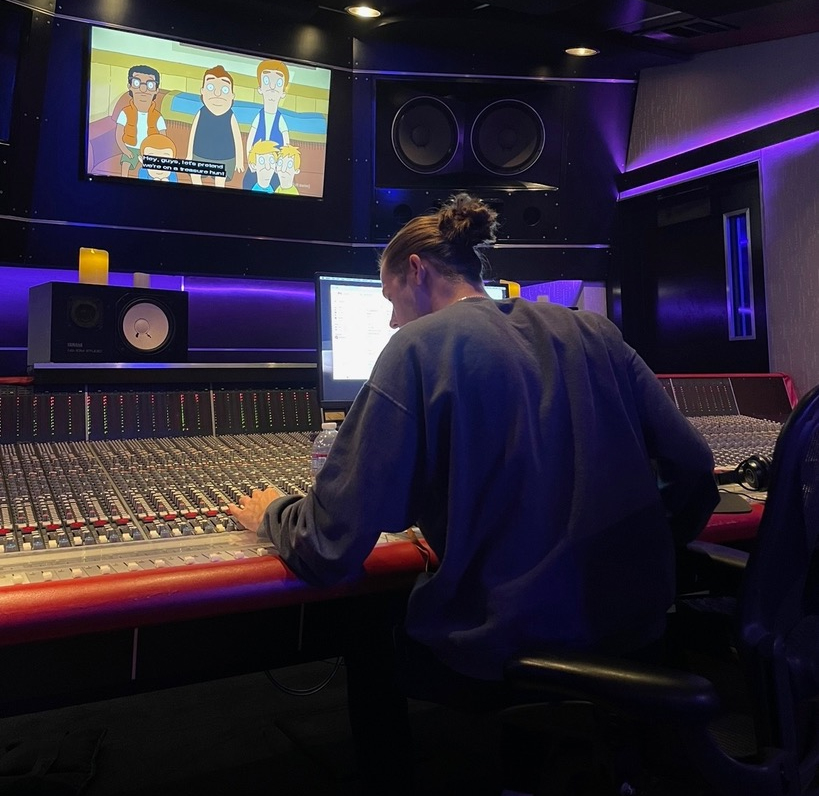
As an adult, Hubbard, a 2019 graduate of The Conservatory of Recording Arts and Sciences (CRAS) in Arizona, spent more than two years interning and working at New York City’s Penthouse Recording Studio. He then moved to Los Angeles to work with Internet Money Records as a recording engineer and mixing engineer, as well as a freelance engineer for other major labels.
Now, his resume includes recording engineer credits on Clueless by Pop Smoke, Playing Games by Summer Walker, Brothers by Lil Tjay, My Turn by Iann Dior, and most of the songs produced Internet Money Records the past 2.5 years.
“I researched audio engineering schools online as my love for audio engineering was pulling me in the direction to make a career of it, and I found CRAS,” Hubbard explained. “I knew right away that CRAS was the right place for me.”
CRAS offers an education in many different disciplines within the world of pro audio, but Hubbard knew from the start that he wanted to focus solely on the music production and audio physics courses.
“I’m not saying that I didn’t learn a tremendous amount of information from the other departments, but I knew what it is that I wanted to do, and what it is that I was passionate about,” he Hubbard continued. “The CRAS curriculum is amazing, and you can get as much help and knowledge as you’re willing to apply yourself to. The biggest benefit for me was being able to book the most high class studios out after hours for as long as I needed.”
After finishing his course work and with the help of CRAS’ internship coordinator, Hubbard landed his mandatory internship with Penthouse Recording Studios in Times Square in the heart of New York City. After about six months, he became an assistant, which led to him becoming the head engineer within a year. After another year, he moved to the west coast and become a personal engineer for Internet Money Records out of Los Angeles.
“I’ll be honest, my living conditions were a bit rough getting started, but I was resilient and I was willing to do anything to make this my career and my lifestyle,” Hubbard said. “I was living in New York at a friend of mine’s place, but after COVID hit, I needed to find a new place to stay. It wasn’t easy for a while, but I made it work.”
Hubbard went from an intern to a full time engineer by keeping his head down and working harder than anyone around him at the studio. “I would sleep days at the studio, do things that weren’t asked of me based off of my own initiative, I knew what to do before it was asked of me, all the while watching the fundamentals of how a recording studio works. I made it a point to be available for any and every opportunity that walked through the door.”
All his sacrifices and efforts paid off.
“Now, I am currently a recording and mixing engineer for mostly Hip Hop/Rap and RnB,” Hubbard explained. “I’m responsible for getting very clean recordings, making sure all the takes are up to par to make a great record, and making sure the records sound polished when given back to clients.”
Hubbard believes the education that he received at CRAS was the foundation for his success.
“If you have the means and if you have a true love for audio, I would say, with 100 percent certainty, to pull the trigger on committing to CRAS,” Hubbard advised. “Secondly, for students currently attending CRAS, I would highly recommend learning and absorbing as much of the information provided as possible. And as important as that, book the studios out after hours to really get hands on experience and knowledge of what you’re doing. I found this vital.”
# # #
About The Conservatory of Recording Arts & Sciences
The Conservatory of Recording Arts & Sciences is composed of two nearby campuses in Gilbert and Tempe, Ariz. A CRAS education includes broadcast audio, live sound, film and TV audio, music, and video game audio, all taught by award-winning instructors who have all excelled in their individual fields, including sound reinforcement, audio recording and production, digital recording, troubleshooting/maintenance, and music business.
CRAS structured programs and highly qualified teaching staff provide a professional and supportive atmosphere, which is complemented by its small class sizes allowing for individual instruction and assistance for students in engineering audio recordings. CRAS has been providing quality vocational training in audio recording for more than three decades. The curriculum and equipment are constantly being updated to keep pace with the rapid advancements in the music and sound recording industries. CRAS’ course offerings and subject matter have always centered around the skills and knowledge necessary for students’ success in the audio recording industries.
The 11-month program is designed to allow every student access to learn and train in all of the Conservatory’s studios which are comprised with state-of-the-art audio recording and mixing gear, the same equipment used in today’s finest studios and remote broadcast facilities, including Pro Tools 12, API Legacy consoles, SSL AWS consoles, Studer Vista consoles, and much more. All students must complete a 280-hour industry internship to graduate from the Master Recording Program II that may ultimately lead to industry employment.
For more information on the Conservatory of Recording Arts & Sciences, please visit www.cras.edu, contact Kirt Hamm, administrator, at 1-800-562-6383, or email to [email protected].
-30-



